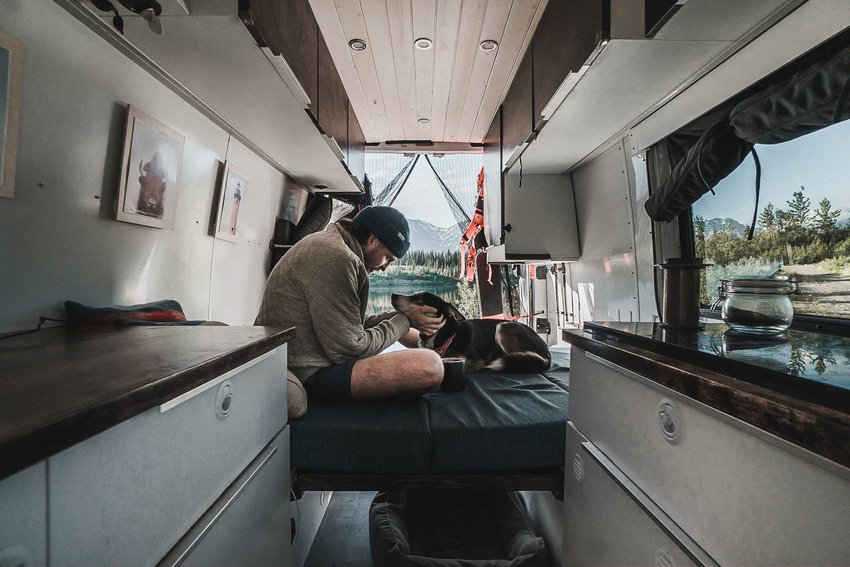In this strange time of restricted air travel and pared-down vacation plans, camping is more appealing than ever. And while some people use car camping as a jumping off point for more rugged backpacking adventures, others take the experience to its logical conclusion, and kit out a camper van with everything they need to live comfortably on the road or in the great outdoors for an extended period.
Sprinter van customizers have added full kitchens, off-grid electrical systems, and even showers to their vans to truly turn them into a home away from home, and Scott Adamson of The Wanderful wants to help others learn the ins and outs of van life. In addition to a blog with a ton of great advice to help you get started, The Wanderful also offers a comprehensive van build guide with detailed instructions, diagrams, gear recommendations, hundreds of photos, and hours of video footage to help would-be van lifers turn their dreams into reality.
We recently sat down with Scott to learn more about how he’s managed to live in a van for four years, and glean some tips for others who want to do their own van build, even if it’s only for weekend getaways. This interview has been lightly edited for clarity.
Four Years of Van Life
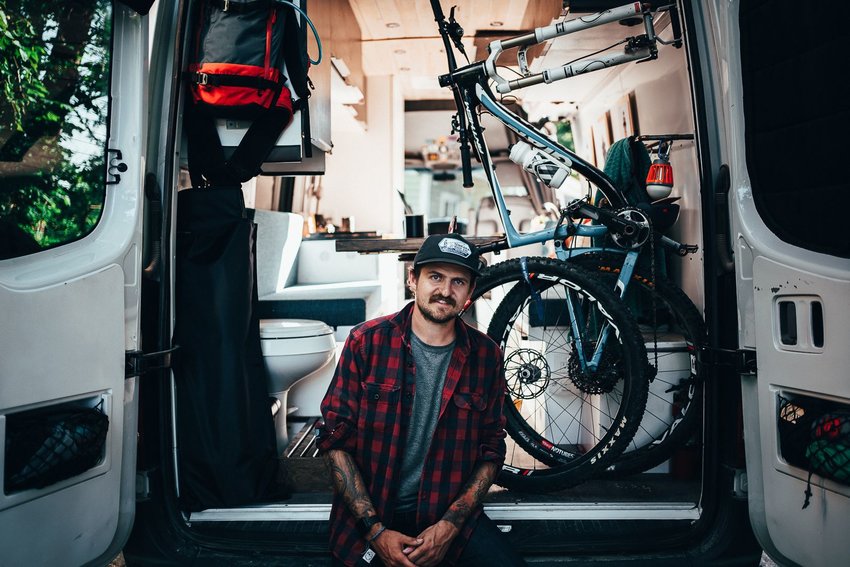
The Discoverer: Just right off the bat, you've been living in a camper van for four years, that's a pretty big life move to make. What inspired you to embark on something that ambitious?
Scott Adamson: Yeah, so I guess it's five years ago now, and back then, the whole van life kind of nomadic minimalist living. It always existed, but it wasn't as mainstream as it was now. I think the thing that kind of drew me to it most was I needed the ability to travel more than I was currently able to. And I came across this lifestyle from one individual, his name is Foster Huntington, he had the first sort of van life account I found on the internet, and just the way he was doing the lifestyle drew me to it. And you tell a couple of friends that this is something you think you'd like to do and they don't really care. But the more people that I started telling, the more and more it really seemed like something I wanted to do.
And then I finally just took the plunge and bought the first van. And even after you buy the first van, you still have an opportunity to back out because it takes a while to convert the van and get ready to leave on that first trip. But once I finished all of that, it took about six months, and hit the road I kind of haven't looked back yet. And I know it's not a lifestyle to live forever, and obviously the state of the world right now is adjusted significantly.
But for me, the main thing was just wanting to experience more and to have the flexibility, because with most trips I'd gone on, even a two week trip would be considered a long trip and you just don't really get the opportunity to immerse yourself in different cities and really get to know the places that you really like. And this lifestyle allows me to live somewhere for two months, three months and then move on to the next place. And you really develop friendships and get to know people and the area, which is kind of a unique way to travel that a lot of people don't really get to experience.
Camper Vans In a COVID World
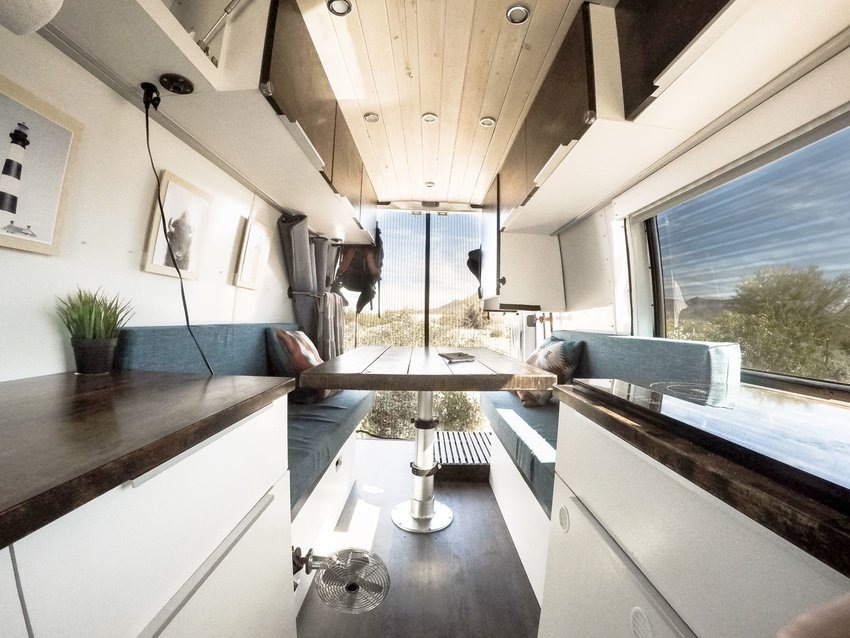
The Discoverer: You sort of touch on this a little bit in that last answer, but people have been converting camper vans for a long time now, but it really seems like 2020 has been a real moment for them given everything going on in the world and the restrictions on air travel and longer trips and things of that nature. So have you heard from a lot of people that are interested in doing this for the first time?
Scott Adamson: Yeah. Seems like the interest has spiked for sure, for a lot of reasons. A lot of people, they are unable to travel to places they would typically travel to, so they're looking at this as an alternative. They feel that the van is almost like their own little isolation pod, so when they do travel around, they don't have to deal with hotels and restaurants and stuff like that. They can still get out and about, but have this safety and security that they feel comfortable within the van. And for people that are regular travelers, a lot of the money that they would be spending on big, say, European vacations and stuff like that. They're just kind of reallocating those funds to this lifestyle. So it's a bit of the perfect storm, which I think makes this type of travel appealing to a lot of people right now.
Not Just For Full-Timers
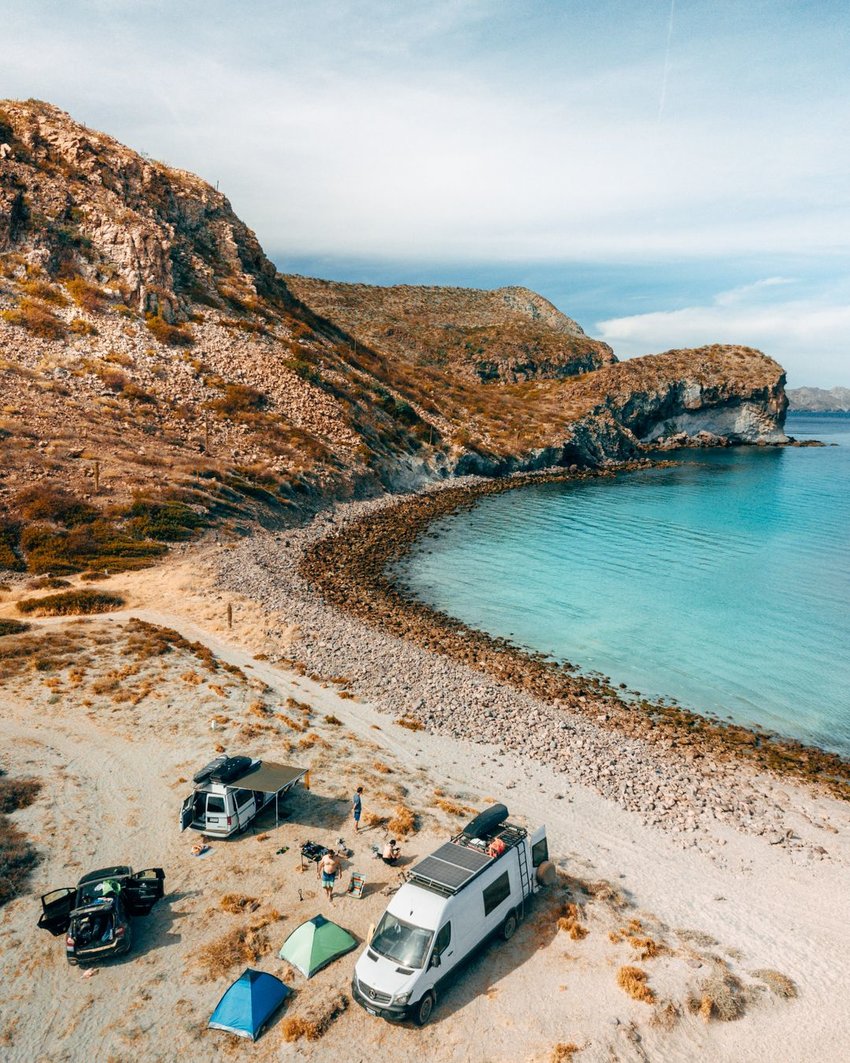
The Discoverer: Most of the people you advise these days, are they looking to use this as more of a weekend or a weeklong type of getaway, rather than a full-time lifestyle change?
Scott Adamson: Yeah, I'd say that's probably 90+ percent of the people. There's very few people that are doing it full time. There's kind of the full-time people and then I call it, there's like the extended travel people that take a year or two off work to do this amazing road trip and just something that you could never do while you were only on one or two week vacations. And then there's the people that do the weekend warrior thing and kind of the little bit extended travel is by far the biggest demographic. And I think a lot of the people who do it full time, sort of transition to the longer road trip people then ultimately become the weekend warrior. I think there's very few people that do it forever, right?
Why Not An RV?
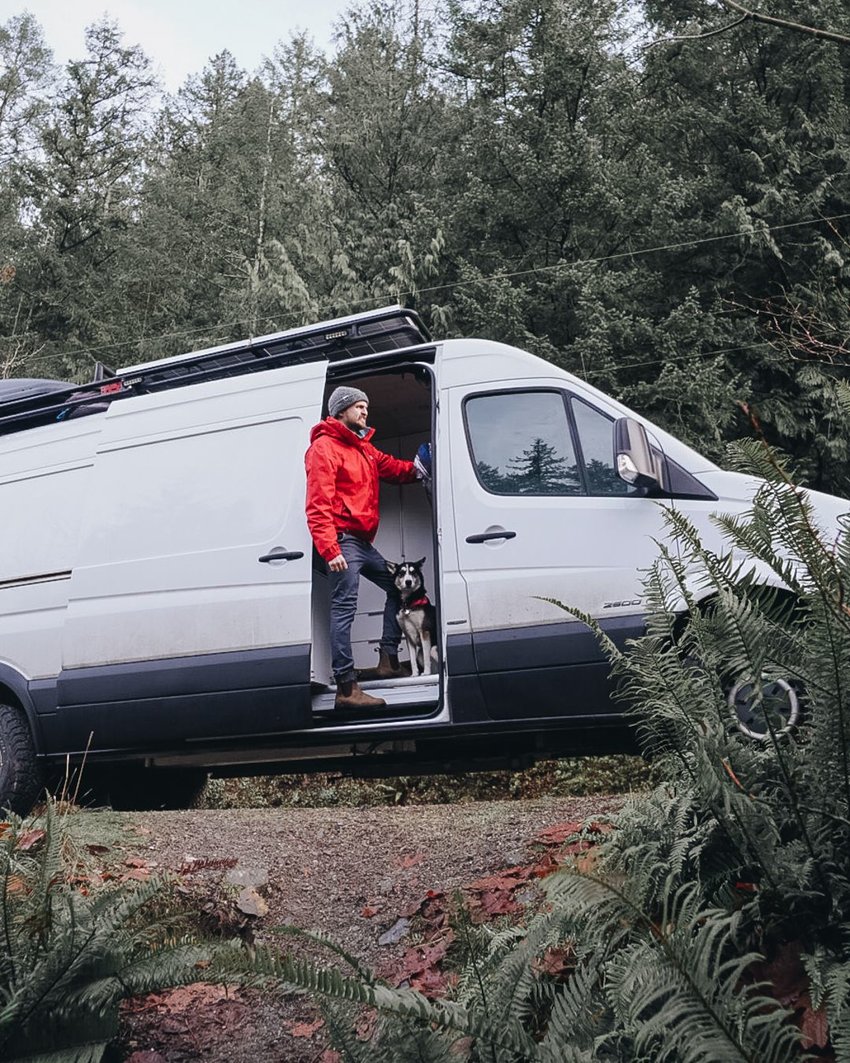
The Discoverer: So what would you say are the advantages of converting a camper van versus getting a small RV or a trailer?
Scott Adamson: Yeah. A camper van compared to an RV is just depending on how you plan on using it. The biggest thing is just customization and what you can put into a camper van compared to an RV. An RV builder, they make a lot of assumptions as to what the mass audience wants for their product. Whereas if you have particular activities and common things, if you're a skier or snowboarder, or a mountain biker, you can kind of get a little creative with the space and make it specific to your needs [with a van], which is the biggest thing.
The camper van conversion typically appeals to the more adventurous person, but the build quality of most RVs just isn't great. They're designed for pavement parking lot camping or big commercial campgrounds, which is to me a glorified Walmart parking lot. You take those things off road and they just fall apart.
I had a friend that had, it was a well-respected RV company that had done a conversion on a Sprinter van, and the whole upper cabinets, we were going down this gravel road, it was a year and a half old, they all sheared off the mounting hardware right on the floor. And that would never happen if you're just driving down the highway, right? Which is where those things are designed and meant to be driven. So those are the biggest things is the customizability for your lifestyle, and if you are doing the adventurous thing, is the build quality that you can get from it.
What To Watch Out For
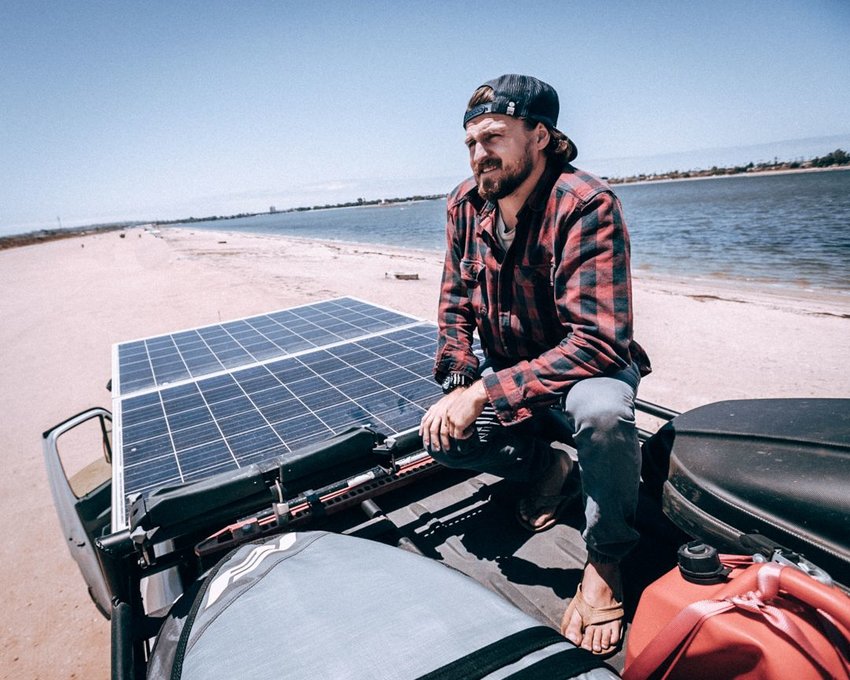
The Discoverer: So to your point, this might depend on what people value most in a camper van, but are there any upgrades for a van that you think deliver the biggest bang for the buck that you think everyone should at least look into putting in?
Scott Adamson: In the camper van conversion space I think one of the biggest upgrades is a lot of people will put in--compared to the RV industry--a fairly significant solar system, which allows you to be fairly off grid for extended periods of time. A lot of the RV manufacturers have solar systems, but basically it's just a 50 watt panel on the roof, so they can barely charge your cell phone. It's just so they can say that it has solar. Whereas most of the people who are doing DIY camper van conversions or the professional outfitters, they have very robust solar systems that allow you to be off grid, run fridges, cook with it, boil water, run your computers, charge camera batteries. People even charge e-bikes off of them. That's kind of the biggest thing is you're never relying on shore power where most RVs and campgrounds are designed, you drive your RV there and you take the big long extension cord and you plug it in. I'd say that's kind of the biggest thing is the change between the camper vans and traditional RV.
The Discoverer: So what are some things that you see trip up a lot of first time van conversions? Like what are some pitfalls that people should watch out for?
Scott Adamson: Probably the electrical is the most daunting. I mean, everything about it is difficult at first, depending on your construction experience, because you are essentially packing everything in a house into a small space. You're trying to factor in a kitchen, a washroom, a living space, and you've got electrical, plumbing, insulation, windows. So if you don't have a basic understanding of those kinds of things, it can be overwhelming, but most of the stuff, if you screw it up, it's not that big of a deal, right. If you get a water leak, sure it's annoying, it's a mess. If you don't fasten your cabinets quite right and they open while you're driving, some stuff might fall out and break, but that's trial and error. But electrical is the one thing where if you don't do it right, you could potentially have a fire is kind of the worst case scenario.
And most people are aware of that, if you lived in a house you know electrical fires are a hazard. So I think that's people's biggest concern. And I do think a lot of the DIY community, they will outsource that part of their build. They'll do everything that they're comfortable doing and then when it comes to the electrical parts, they might purchase all the components that they've researched and had been recommended to them, but a lot of times they might get an electrician to actually help connect everything together, which I think is a pretty good idea.
How Much Does It Cost?
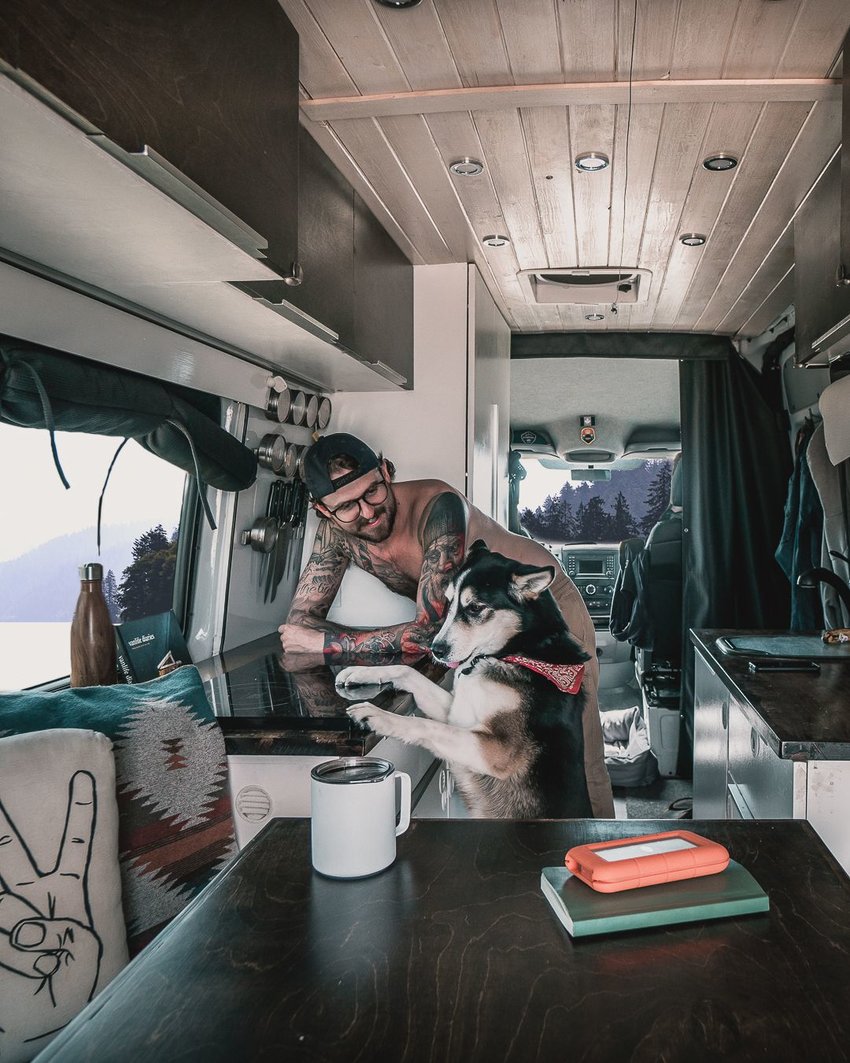
The Discoverer: If someone's looking to do this for the first time and maybe use your guide, for example, what sort of expense and what sort of time commitment do you think generally people are going to be looking at to get into it?
Scott Adamson: Yeah. My first build took me six months. That's not including probably a year off and on of research prior to starting to build, to kind of figure out what was out there, what was available, what systems, because everything's unique, right? The water pump, your fridge, you're running 12 volt fridges instead of fridges just plugged into an outlet. It's all these things you didn't really think about..
But there are videos and people I've met that do these super fast and quick, and it's a little more of a throw it together build, and they get it done in a month or two months, right? For me, I'm currently working on another van now, it's kind of my coronavirus project, and it's going to take me six months again. So I feel like that's a safe number without it turning into a full-time job.
When it comes to budget, again, that's a real floating target because batteries can be $1,000 for just a single lithium battery. So if you think you need three of them, that could be $3,000 versus $1,000. My first van, which I feel is fairly, I'd say kitted out with roof racks, and ladders, and huge solar system batteries. Not including my time at all, just straight expense, I think I was in the $25,000 to $30,000 mark, and I didn't really skimp on anything. So if you're doing the work yourself, I'd say that's a pretty good sort of upper end for the materials, and you could definitely get it done for way cheaper.
Where Can You Go?
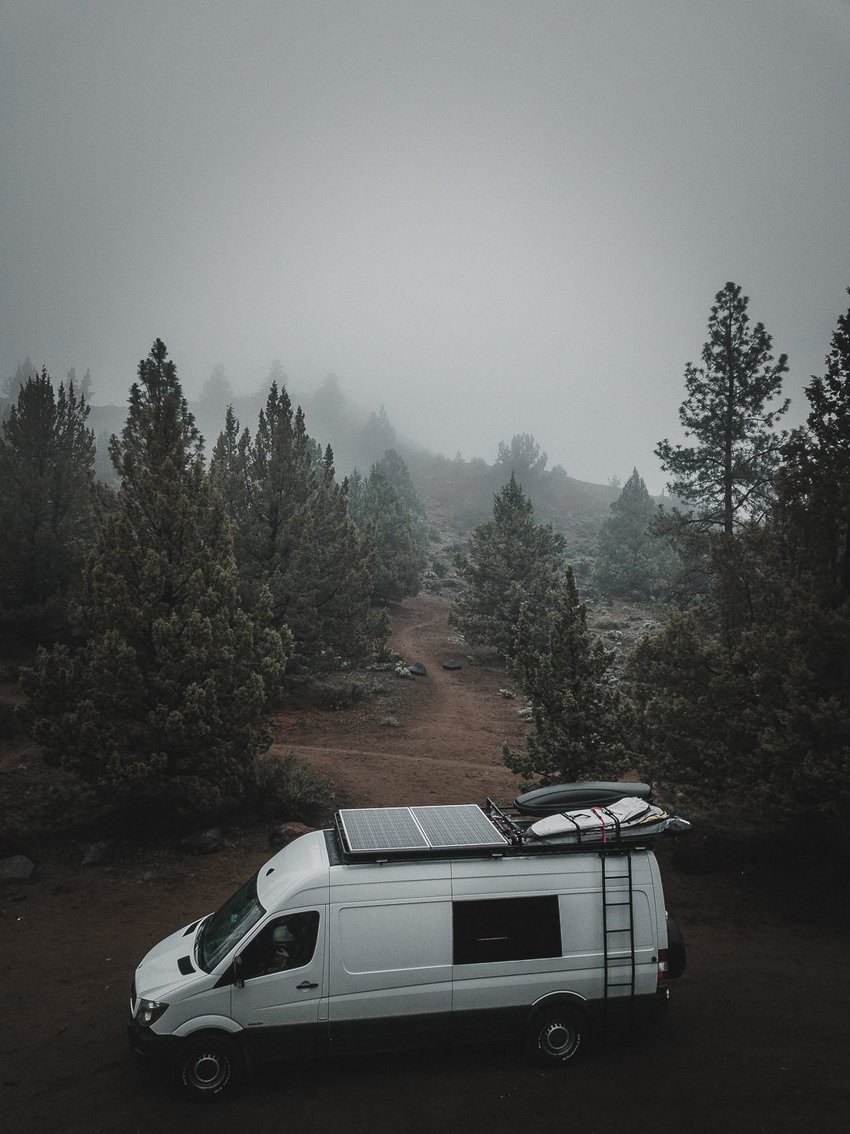
The Discoverer: So what are some of your favorite places you've taken your vans?
Scott Adamson: I do like to get a little bit off the beaten path. So I've spent a fair amount of time in Mexico surfing down in Baja. So I kind of love it down there. And then about a year ago I did a huge trip up through Northern British Columbia and Canada, and then into Alaska and then back into the Yukon and Northwest territories in Canada to the Arctic ocean. And that was a trip I'd like to do again next year once everything goes back to normal, because I like the trips where you really feel like you're getting, off the beaten path and somewhere where not a lot of people get to experience this. You definitely still see cars on the road, but you might see a car every 15, 20 minutes, an hour.
Anywhere I can kind of get that experience it just, to me, feels a little bit more like an adventure. Like I'm having a unique experience. All the national parks are amazing and beautiful, but depending on the time of year you go, sometimes it just feels like you're just being fed through the trap. It's just go see the thing you're supposed to see and leave. And they're always beautiful, but I feel like I'm just having the same experience as the other 5,000 people or how many.
It’s enabled me to do a lot of things that I just never would have been able to do, right? Like the trip up through Alaska, it was a three month trip from Mexico all the way up the coast before I sort of got back to another destination. For the average person on that trip, they'd have to break it up into probably five different sections over the course of three years, right? So we've been very fortunate to get to do those kinds of things.
The Discoverer: Anything else you’d want our readers to know?
Scott Adamson: I think the biggest thing is because van life has grown so much in popularity and there's such a big difference between the sizes of vans, there's the shorter model, the bigger model and then how those vans are equipped, some of them have full bathroom, shower, some of them don't. I would say before people get into it, try and rent one. There's companies now like Outdoorsy where people can rent other peoples’ RVs. I have buddies that rent their Sprinter vans on there when they're not using them. And then there's a couple of companies that have a fleet that you can rent that are converted more like you would convert them yourselves (editor’s note, check out Overland Discovery if you’re in Colorado, and use promo code DISC20 to save $25 on any 3-night reservation).
I do recommend doing that before you commit to a size of vehicle and the layout to just give it a try, because you're going to be spending a decent amount of money to get into it, and you're going to be making a bunch of assumptions based on what you read online and what other people have told you they needed. Which is helpful, but because these now exist where you can try it out I think it's a good idea to do that and do a little road trip and see what you like and don't like about the vehicle, features you use, didn't use. And for my first van to my second van, there's a whole bunch of things that I had on my first one that I didn't need and on my second one that I'm adding now.

